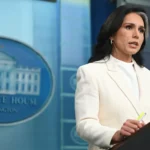Energy Cabinet Secretary Opiyo Wandayi has said that Uganda’s recent fuel import policy changes disrupted Kenya’s Government-to-Government (G-to-G) fuel importation deal, affecting the availability and timing of fuel supplies in the country.
Speaking before the National Assembly’s Departmental Committee on Energy on Tuesday, Wandayi explained that Uganda’s decision to begin importing refined petroleum products through the Uganda National Oil Company led to a reduction in the number of monthly shipments. This shift interfered with the agreed timelines under the G-to-G deal.
The Cabinet Secretary noted that the G-to-G arrangement was introduced at a time when Kenya was facing serious pressure on foreign exchange reserves due to the dollar-based payment system used for fuel imports.
“The G-to-G deal helped ease pressure on the dollar, revive the interbank forex market, and stabilize the exchange rate,” said Wandayi during the session chaired by Nyatike MP Tom Odege.
He added that although the initiative had led to a drop in pump prices, disruptions caused by Uganda’s policy shift had posed fresh challenges to its implementation.
Wandayi also said that advice from the National Treasury and the Central Bank of Kenya indicated that the country had not fully recovered economically. As a result, there was a need to continue supporting the economy through fuel supply stability.
“In light of this, the Cabinet approved the extension of the Government-to-Government arrangement for another 24 months. The new deadline is expected to run until the first quarter of 2028,” he said.




